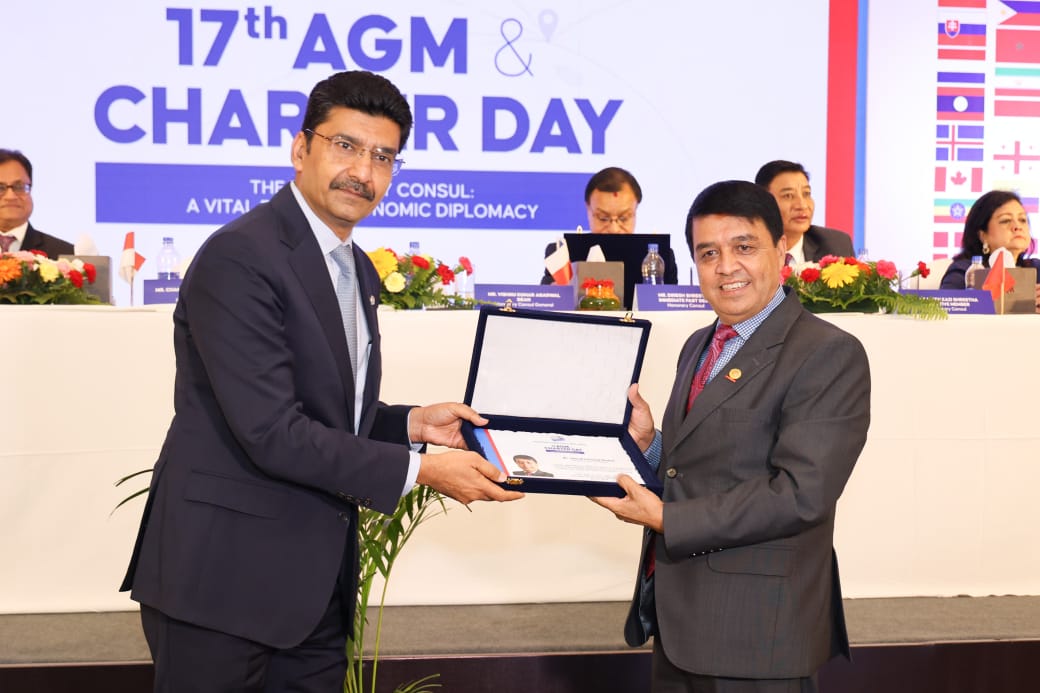Nepal Can Boost Growth by Bolstering Private Sector

Kathmandu, Nov17. Nepal can boost sustainable investment and accelerate productivity with a comprehensive growth strategy that focuses on enabling the private sector and removing constraints to competitiveness by focusing on five priority sectors—tourism, agribusiness, education, health, and information technology, according to a new study by the World Bank and IFC.
The two institutions’ first joint Country Private Sector Diagnostic for Nepal found that institutional challenges and a demanding geography have made it difficult for Nepal to build on its unique advantages. These obstacles can be overcome with a new approach that focuses on strengthening institutions, infrastructure, and connectivity, while removing investment barriers.
Prepared in close consultation with the government and other stakeholders, the report, Creating Markets in Nepal, assesses opportunities and provides recommendations and policy reforms that could enable the growth of a competitive private sector. “Cross-cutting constraints need to be addressed to attract private investment and expertise,” said Nena Stoiljkovic, IFC Regional Vice President for Asia. “Simpler regulations, better infrastructure, stronger institutions, and more developed human capital can open the doors to investment.”
In recent years, Nepal has made considerable progress in reducing poverty—from 46 percent in 1996 to 15 percent in 2011—but remains one of Asia’s poorest and slowest-growing economies. Over the past 20 years, Nepal’s real GDP growth rate has hovered around 4 percent per year, 2.5 percentage points below the South Asian average. Remittances from Nepalese working abroad play a significant role in the country’s economy, accounting for 26 percent of the GDP in 2017, but can fluctuate greatly because of shifts in global economic conditions.
“The Government of Nepal sees a greater role for the private sector in its new growth strategy, which aims to transform the economy from a remittance-driven one to a production-led one that creates jobs and boosts incomes,” said Dr. Yuba Raj Khatiwada, Finance Minister of Nepal, “We have already begun work on scrapping outdated laws and drafting new ones to simplify the tax system, create a conducive environment for investment, and introduce reforms to help the sector thrive.”
Hartwig Schafer, the World Bank’s Vice President for the South Asia Region, said: “Although the private sector already plays an important role in areas such as health and technical training, significant opportunities remain for broader engagement. The Government of Nepal has asked the World Bank Group to support its immediate priority of crowding in the private sector. We view this as a positive step forward and stand ready to support these critical reforms by going beyond traditional sources of development financing.”
The Country Private Sector Diagnostics provide an in-depth analysis that offer recommendations for leveraging private sector solutions to achieve development objectives. Jointly produced by the World Bank and IFC, diagnostics are underway in Angola, Burkina Faso, Cameroon, Ecuador, Ethiopia, Guinea, Indonesia, Jordan, Kenya, Kyrgyz Republic, Lebanon, Morocco, Mozambique, Myanmar, Philippines, Rwanda, Senegal, South Africa, Tunisia, and Uzbekistan

"There are mixed results in half-yearly budget progress"

Total government spending amounts to Rs. 667.60 billion in 6 months

"There are promising signs of economic recovery"

Finance Minister Paudel directs to meet revenue target

Suspended Chief Secretary Aryal acquitted in corruption case

Dhakal elected HCCN Dean

Price of salt goes up




_9ce9cWGIjD_f4prhhhnxxxnqcssgdayygw9mucepymfxlkrurogb5c1st16yzypdaiuzw7w_M5aQJB0kpE_7cdzzcqlx6xezuoqkjcfthkht5iwls2lhyigxc4saf6niaheayavknly9eyc_lbkkE9HwwY_ncgwkqjqfvjevi4wu85o2nq72v1lsaqh2yllyznzfat6rt7j4girzwuquwdg_vPiDOt36er_6xbovbhwre7op9ujhl7sczoz6qyq3vo8mlgox8cjwaffhru13ewmegvswlfg_L4zvC6yz9u_6gnvpe5hwdxic9kkjsbtqyjsx9ma5ojm8jgaoorgjg3xhlepemwkmvnntumb.jpg)


Feedback